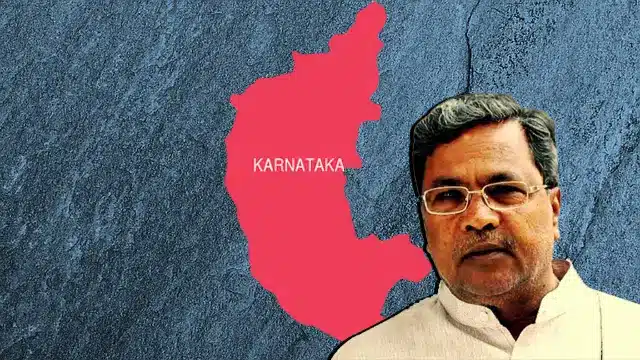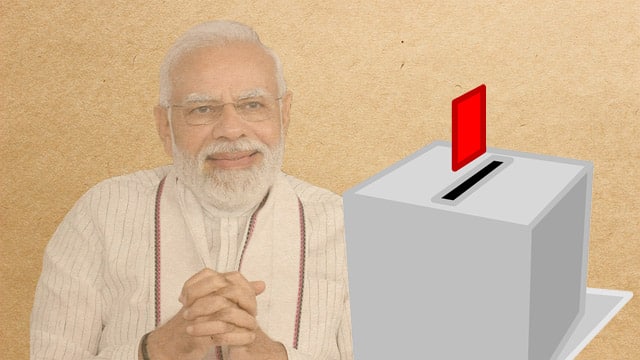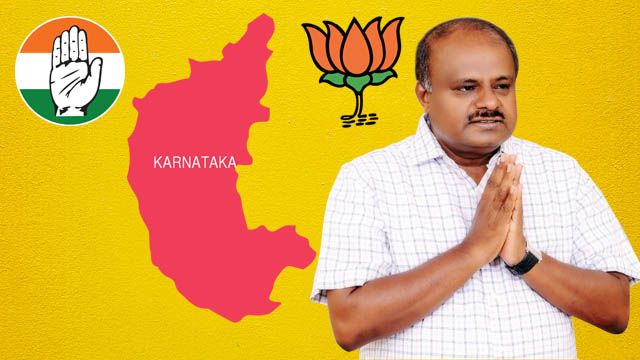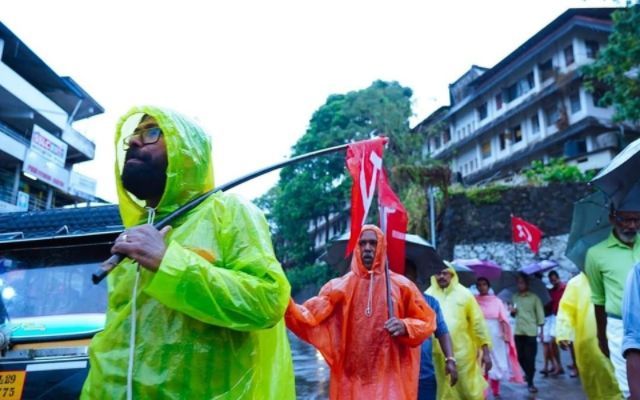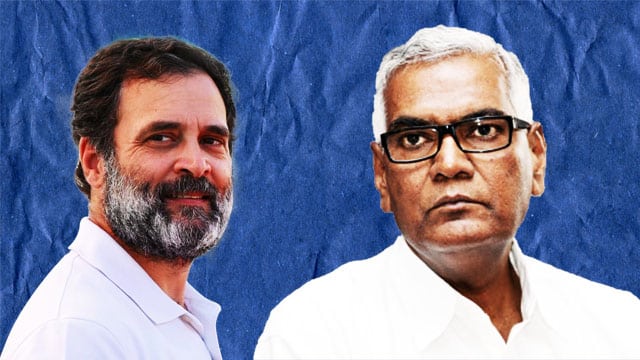On July 15th, the Karnataka Cabinet approved the highly controversial ‘Karnataka State Employment of Local Industries Factories Establishment Act Bill, 2024’, which proposed reservation for the Kannadiga people in managerial and non-managerial positions in the private sector but within hours it was put on hold till “detailed discussion is done in the next cabinet meeting”, according to the Chief Minister’s Office. The Karnataka reservation bill proposes 50% and 75% reservation for locals in managerial and non-managerial positions, respectively, received backlash from industry as well as from the Opposition.
What does the Karnataka reservation bill entail?
According to the Karnataka reservation bill advocates 50% reservation for locals in managerial positions and 75% in non-managerial positions in private. In case enough eligible candidates are not available, the industries in collaboration with the state government will have to train local candidates within three years.
Even after three years if the industry faces problems, the bill provides the government powers to exempt such industries from reservation after an inquiry into their claim of not finding suitable locals.
However, the exemption will be provided only if 25% of managerial positions and 50% of non-managerial positions are filled by locals.
For contravention of the proposed law, a minimum penalty of Rs 10,000 and a maximum of Rs 25,000 has been prescribed. For continued violations of the law, the penalty amount can be increased to Rs 100,000.
However, there is no jail provision in the Karnataka reservation bill. The bill also provides for a limitation to prosecution for six months meaning that no court can take cognisance of the offence under the proposed law after six months.
Why do the industries oppose Karnataka reservation bill?
Karnataka contributes 7% of the national GDP and capital Bengaluru contributes 43.86% to Karnataka’s economy. The tech sector contributes 25% to the GDP of the state which houses a quarter of the country’s digital talent, over 11,000 startups and 30% of the total global capabilities centres (GCCs). Bengaluru’s $245bn technology industry with a workforce of 1.5m million can be adversely impacted as most of the people working there are non-Kannadigas. Bengaluru has a very small population of the Kannadigas— a mere 26%. They don’t have a big presence in the IT, real estate or manufacturing industries. Nearly 68% of all hiring requests in the tech landscape flow through the South Indian region.
But some industry leaders called the Karnataka reservation bill a “short-sighted”, “fascist” move hurting the state’s image as an investor-friendly destination, a house of huge tech companies. Industry body Nasscom warned that it could force companies to relocate.
Biocon founder Kiran Mazumdar Shaw and former Infosys director TV Mohandas Pai also criticised the move, calling it “discriminatory, regressive and against the constitution”. Mr Pai termed it “a fascist bill as in Animal Farm” on social media platform X.
The relevance of language tests to enter into the private sector is also being questioned.
Further, a bill for 100% reservation of the Kannadigas in ‘C’ and ‘D’ grade roles invited sharp criticism from the industry.
The issue of tax and immigration
South India’s population growth has slowed down as southern states have implemented better female literacy and family-planning initiatives since independence. However, these states feel they are being penalised, instead of being rewarded for succeeding in their developmental goals because of increased immigration and the Union-States tax revenue sharing model.
While the southern States, including Karnataka, contribute more taxes to the Union’s coffers, they receive a lesser share of money compared to the Hindi belt States that have a higher population.
For example, while Karnataka paid GST worth Rs 1.45 trillion to the Union in the financial year (FY 2023-24), it received only Rs 402.80bn from the latter. However, at the same time, while Bihar contributed only Rs 180.21bn as GST to the Union, it received Rs 1.11 trillion in return.
Similarly, while Tamil Nadu paid a per-capita GST of Rs 14,461.14 to the Union in FY 2023-24, it received a per-capita share of Rs 5,369.79 from the latter. At the same time, Uttar Pradesh, which contributed a per-capita GST of Rs 3,956.08 to the Union in FY 2023-24, received Rs 7,707.90 in return.
Local discontent in the southern States over the Union’s tax distribution system has led to hostilities towards the migrant workers—both blue and white collar—from the Hindi belt, who move to the southern States in search of a livelihood, has been on the rise.
When it comes to the IT sector, compared to the other big south Indian cities—Chennai, Hyderabad, Kochi or Coimbatore—Bengaluru is the first choice for most people. In 2012, a public interest litigation (PIL) was filed against several IT companies that discriminated against Kannadigas during recruitment.
The PIL seeks the total implementation of Dr Sarojini Mahishi Committee’s report, filed in 1986 but has been put in cold storage by successive state governments. It claims “Kannadigas employed in IT firms in Bangalore is less than 10 % compared to Tamil population in IT industry in Chennai and Telugu population in IT industry in Hyderabad where they are 70 to 80% of workforce”.
Recently, Karnataka Rakshana Vedike (KRV) and others have been in the news for vandalism and protests over their demand for minimal use of English while promoting the use of native language in banners, billboards and signboards.
In December, a major protest had broken out on this issue, prompting the Bengaluru-based businesses to raise their concerns about safety with the government. After multiple such protests, the Bengaluru civic body, Bruhat Bengaluru Mahanagara Palike (BBMP), issued a notice to commercial establishments, directing them to apply 60%signage rules in Kannada. The Kannada Language Comprehensive Development (Amendment) Act, 2024 was introduced by the government in January this year to implement this rule.
A political clash
The Indian National Congress (INC) included the reservation proposal in their manifesto for Karnataka Assembly elections 2023, which was coined as a ‘populist agenda’ by other political parties. After the draft bill was put on hold, Bharatiya Janata Party (BJP) leader CT Ravi termed it “Natakbaazi” (drama) and said that the situation has turned hostile against Chief Minister Siddaramaiah and the INC government.
Similar stories
Andhra Pradesh and Haryana were among the first states to reserve jobs in the private sector in India but with a salary cap. In the case of Haryana, reservations up to 75% were applicable for jobs with a monthly salary of Rs 30,000 and in the case of Andhra, the monthly salary cap for 75% reservation was Rs 50,000. The Karnataka reservation bill does not provide a salary cap. However, like Andhra Pradesh, Karnataka has also provided three years for the industry to implement the law, once passed by the state legislature.
In the 1970s, Andhra Pradesh brought in a law allowing domicile quotas for jobs in the Telangana region to curb the demand for a separate state. The Supreme Court struck down this law as unconstitutional. In 2019, the AP government passed a law similar to the Karnataka reservation bill. When challenged in court in 2020, the AP High Court made a prima facie observation that the move “might be unconstitutional”.
Similarly, in 2020, Haryana enacted the Haryana State Employment of Local Candidates Act, which was challenged in the Punjab and Haryana High Court. The High Court in 2022 quashed the law terming it ultra vires of Part III of the Constitution and violative of Articles 14 and 19 of the Constitution which provides for freedom of employment across India.
While a flawed tax distribution system has allowed state governments in certain Hindi-belt States to ignore the task of creating infrastructure that can create jobs and prevent migration to other States, the reliance of the corporations on migrant workers for both blue and white-collar jobs has fuelled ethnic tensions in Karnataka.
If the Karnataka reservation bill remains in cold storage, the debate over it may die down eventually but the discontent of the Kannadiga people, over their allegation of losing control over Bengaluru, has the potential to fuel more trouble in the future.
Join our channels on Telegram and WhatsApp to receive geopolitical updates, videos and more.

